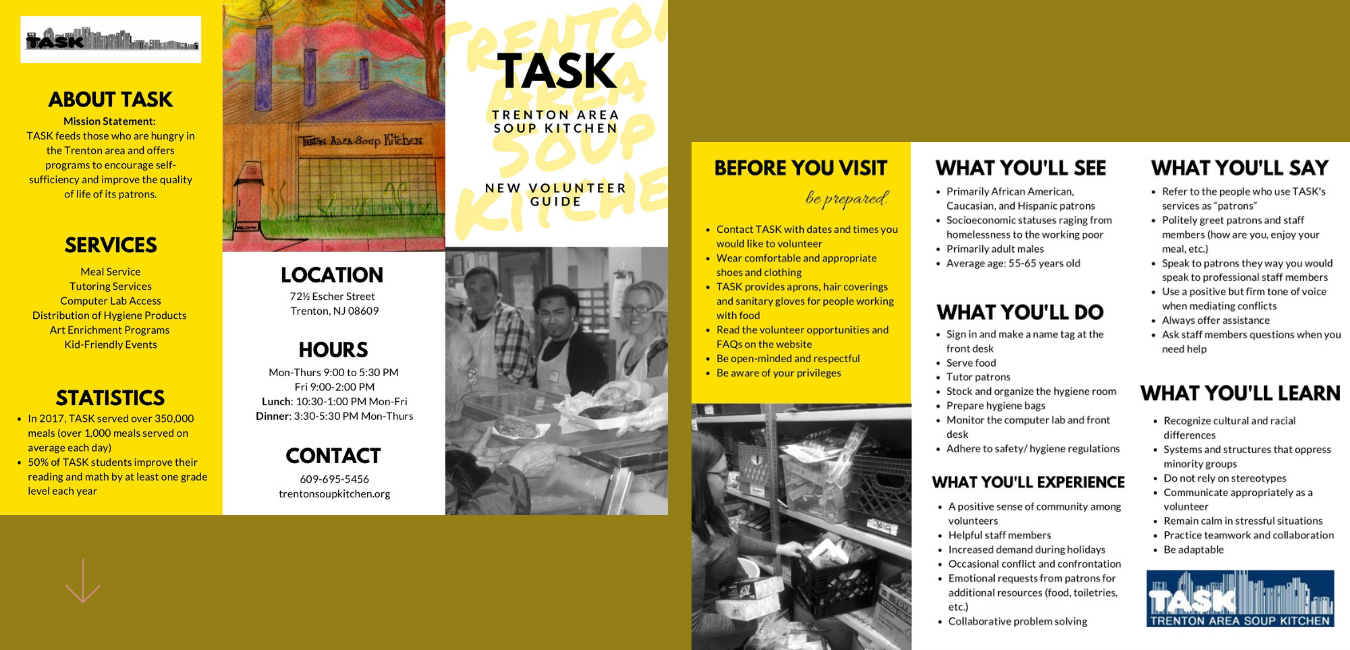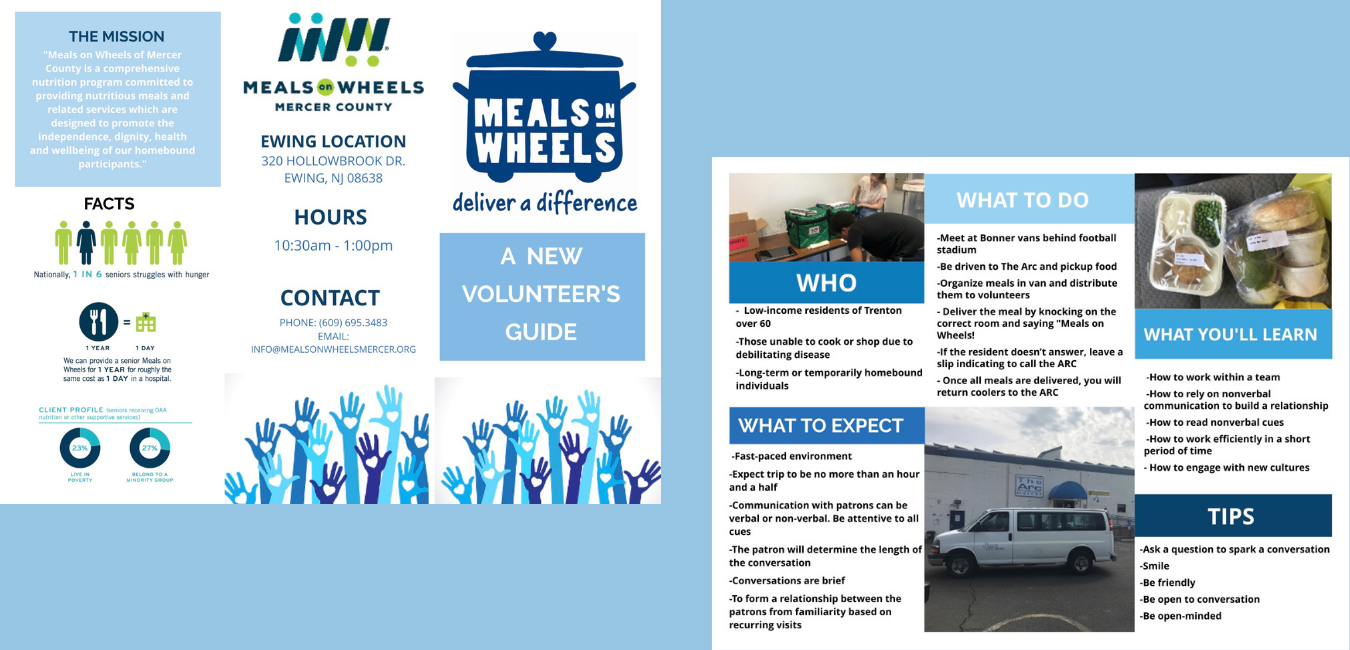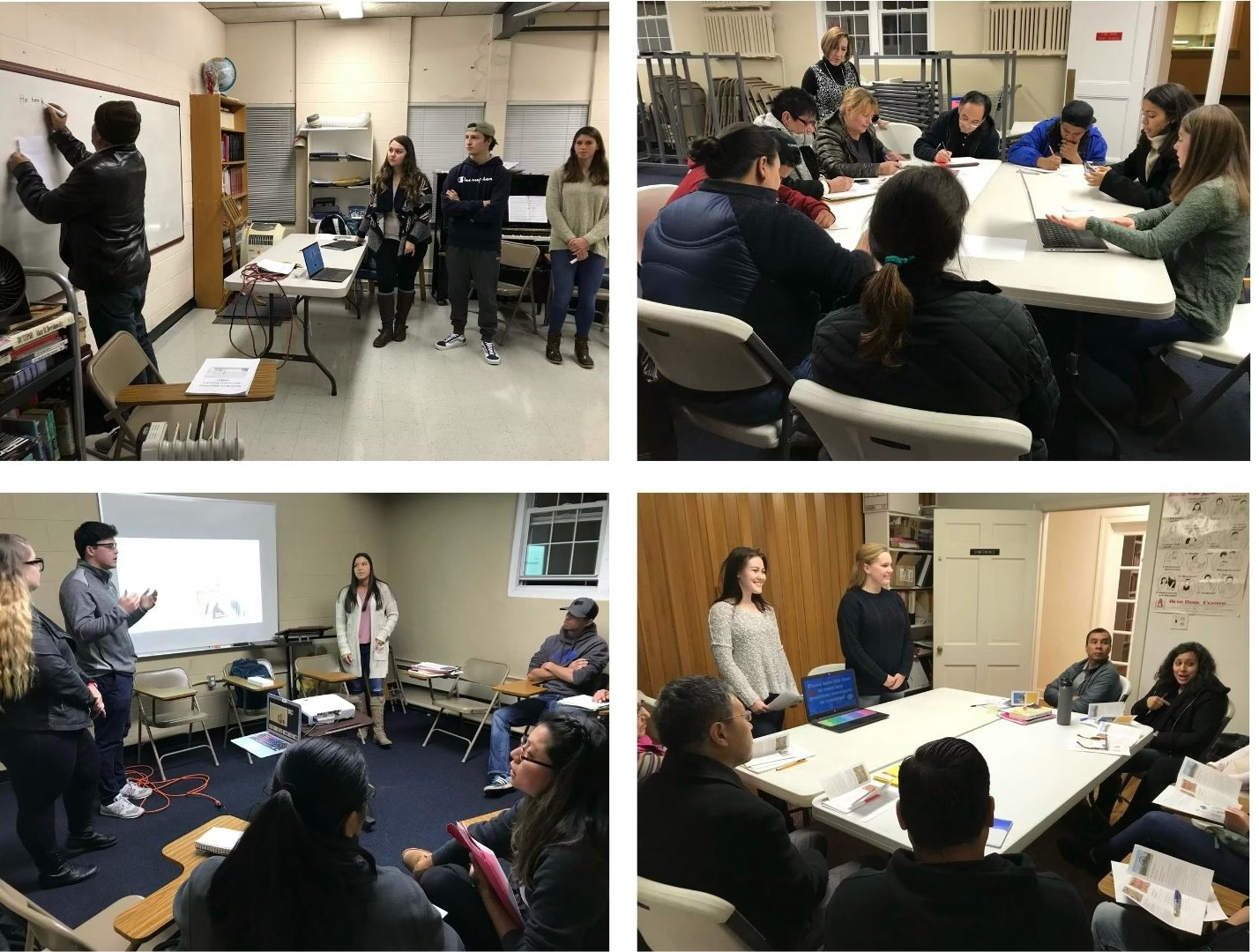Editor’s Note: Carly Nocchi ’22, a communication studies and political science double major, wrote the following reflection about Advanced Community Engaged Learning at TCNJ.
Breaking Out of The TCNJ Bubble:
A Student’s Takeaways from Advanced Community Engaged Learning
by: Carly Nocchi
In my view, college experience should be about pushing oneself to try new things and shoving oneself out of their comfort zone. It is one of the first and last times in one’s life where you can reinvent yourself and your beliefs through the abundant resources and opportunities provided by your institution. For me, I did this by enrolling in an advanced level Intercultural Communication course as a freshman in the spring of 2019. I did not know what to expect or what would come of it, but now in the 2020 fall semester of my junior year, the takeaways from this class continue to be endless. The paper that stemmed from this class, alongside several of my peers’ projects generated from this class, was presented on October 16, 2020 at the 78th Annual Conference of New York State Communication Association as part of a panel about incorporating intercultural communication and community engagement into the classroom setting. We received very positive comments from the audience. One graduate student from the University of Miami commented that she enjoyed our sharing and thought that it was such an enriching and engaging curriculum that our instructor, Dr. Yifeng Hu, created in this class. “Something that more places should integrate,” she said.
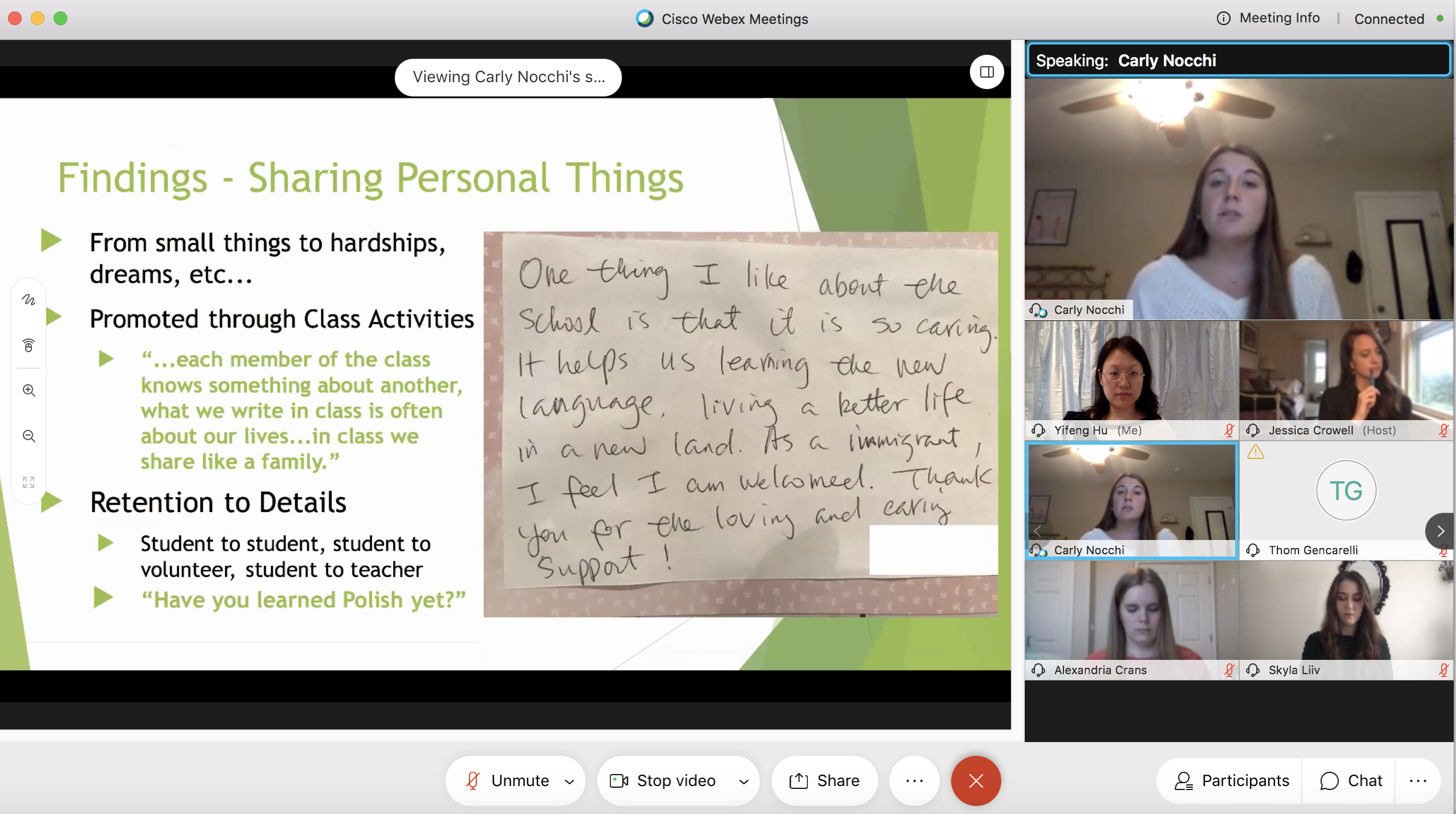
Enrolling into Dr. Hu’s COM 411 Intercultural Communication course was easily one of the best decisions of my college life thus far. When I decided to come to The College of New Jersey, the most common piece of advice I heard from friends and family was to stay as far away from Trenton as possible. All their perceptions of the city cultivated inside my head and convinced me that in my four years at TCNJ I would never step foot inside the city limits. If it weren’t for Dr. Hu’s class, I would have never been able to experience the true Trenton and break out of the TCNJ bubble. We have a beautiful campus, amazing professors, and so many other opportunities afforded to us right on our campus. What I know now is we also have a beautiful city, with amazing and diverse people, whom we can learn so much from.
The Intercultural Communication course is an Advanced Community Engaged Learning (ACEL) class. In addition to studying communication within and between cultures, and the importance of developing one’s ability to communicate effectively with people from diverse cultures, students are guided to apply what they are learning in the classroom into projects designed alongside local non-profit organizations, in order to provide assistance to community-identified needs, such as delivering intercultural communication workshops for patrons of the organizations.
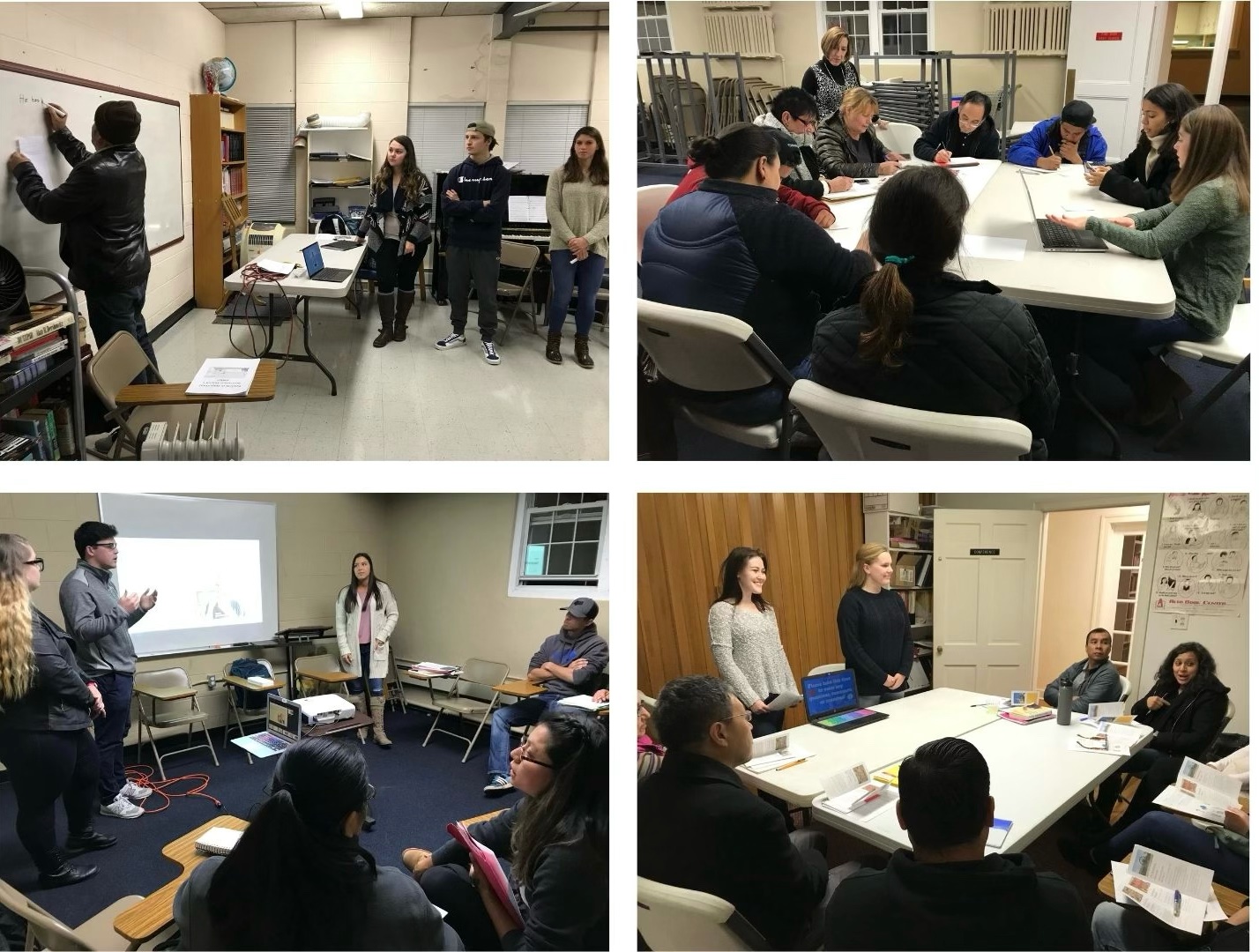
In the past, Dr. Hu’s classes worked with community partners such as Trenton Area Soup Kitchen, Meals on Wheels, and HomeFront. The ACEL project my class took on was to complete mini ethnographic studies of two English as a second language schools, one named The Latin American Legal Defense and Education Fund in Trenton, and the other the English School in Lawrenceville, and create intercultural guides for their volunteers respectively.
Before we could do that, Dr. Hu knew it was important for us to assess the preconceived notions we all had of Trenton and the surrounding areas. Through TCNJ’s Center for Community Engagement, we got to meet Samuel Kanig, the TCNJ Community Fellow in Residence 2018-2019. He gave us a cultural tour of Trenton and introduced us to some of the community members. Through this tour, we learned all the strides the city was making towards becoming a better place to live. What was surprising to us was that community members were the ones who started many of these movements. They weren’t leaving their city’s fate in the hands of anyone else, but themselves. Their diversity is their strength; they see that Trenton can become a cultural hub. This cultural tour helped to break down so many stereotypes we had about the city and this allowed us to be prepared for Sam’s next visit to our class.
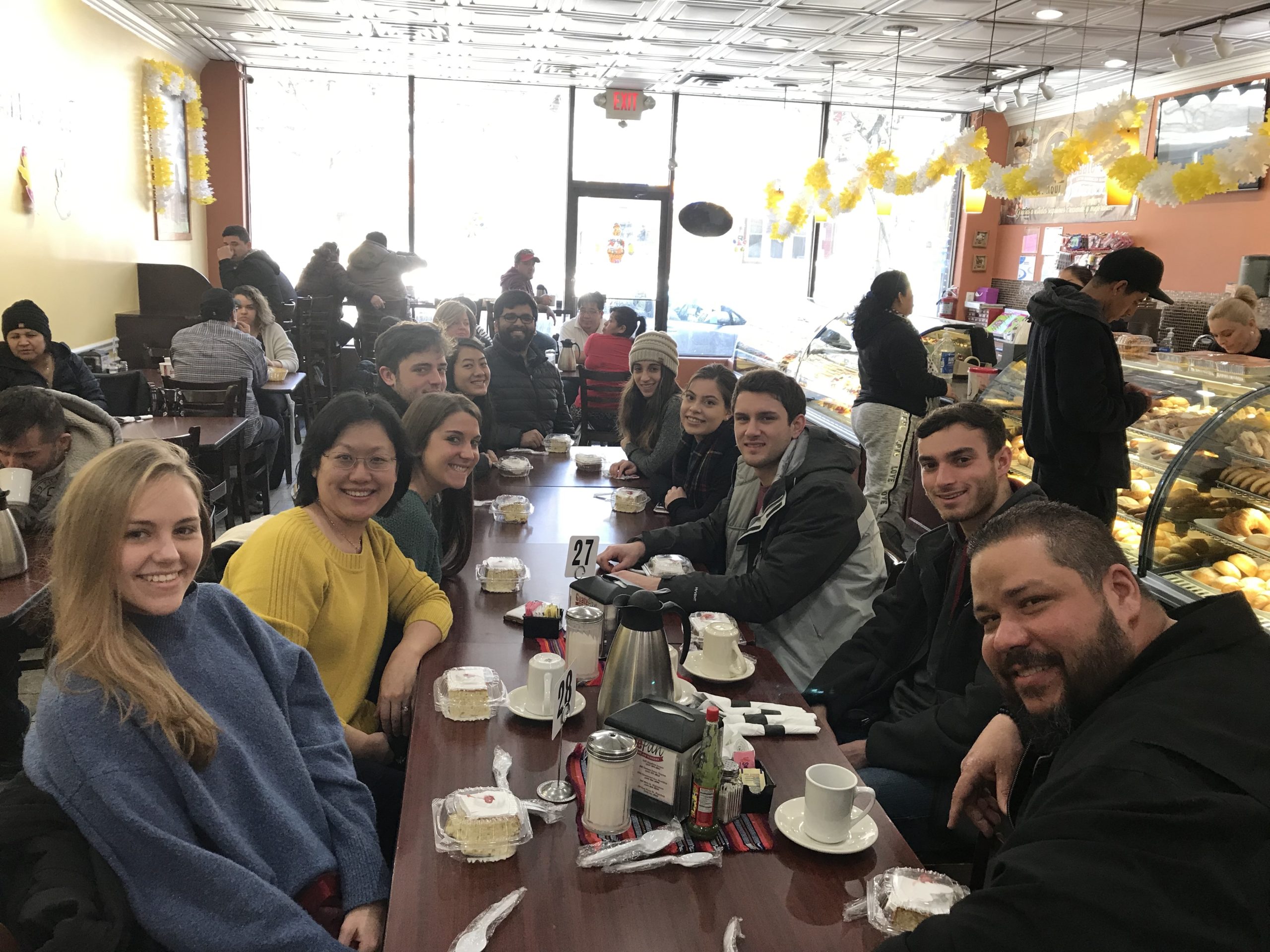
The next time we saw Sam was when he came into our class to introduce us to someone he mentored since he first immigrated to America, Carlos Salinas. Carlos is a remarkable person who in such a short period of time has accomplished so much. When he got to Trenton, he spoke minimal English, but as he sat before us you would never be able to tell he hadn’t been speaking the language for years. For many of the students in the class, this was our first time meeting a first generation immigrant. We all mostly came from predominantly white towns and hadn’t experienced diversity until we got to TCNJ. The only stories of immigrants we got to hear were those the media highlighted. That is one of the reasons Carlos’ and his story had such an impact on us as a class. He was simultaneously becoming a community leader and activist, while also working to get his YouTube channel off the ground. For someone who has had struggles beyond the realm of what I could ever fathom, he was so optimistic about the future. This solidified even more the kind of people the surrounding community had to offer and the experiences I could learn about and ultimately from.
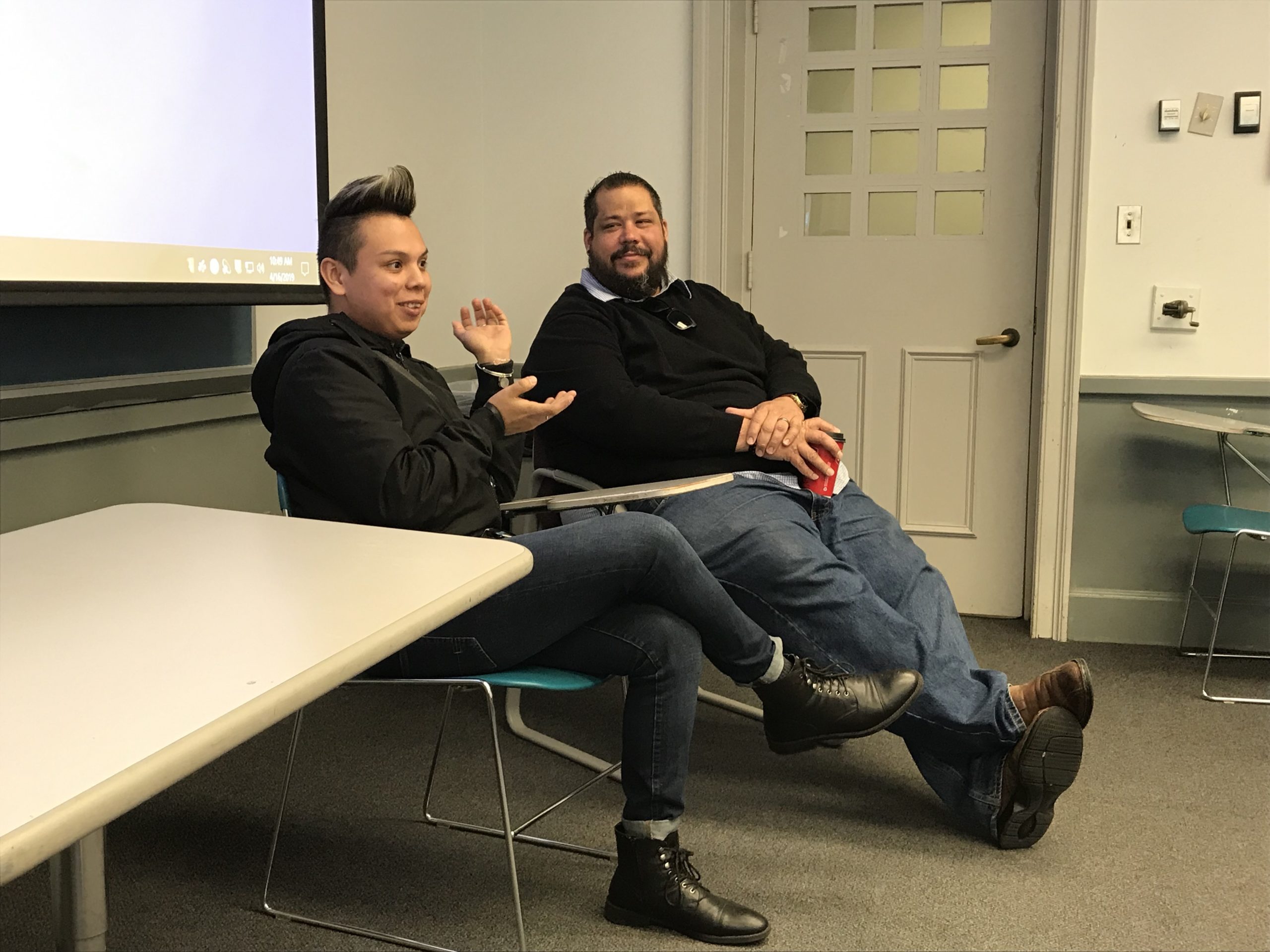
Meeting both Sam and Carlos prepared us well for our mini ethnographic studies. We were able to go in more conscious of implicit biases we may have had and other people’s opinions clouding our head. My group visited The English School a total of three times. That may not seem like enough, but honestly one would only have to spend ten minutes in one of their classrooms to have a clear picture of the school’s culture. It is one of the most accepting, compassionate, and supportive places I have ever had the privilege of going. This school is a family. The students come from all over the world and attend the school for various end goals, but one thing seemed to be similar for them all: they all wanted to feel connected to their communities. I hadn’t realized how isolating it could be for an immigrant when they first arrive in America. Even when they have their family here with them, they are ostracized from the larger community due to language barriers and the contentious debate on immigration. It is easy for them to feel unwanted here. That is why in my opinion, the most important thing The English School provides for their students is a tie to the community. The teachers and volunteers form genuine bonds with the students that many times become friendships that extend and last beyond the classroom.
The reason the bonds formed there are so strong stem from the most important lesson I learned from my time observing the school. The teachers and volunteers cannot go into this type of environment with a super hero complex. That cannot be where your desire for getting involved in volunteer work lies. These immigrants are intelligent and brave individuals; they do not need to be saved by us. In fact, all of the teachers and volunteers I spoke with wanted to emphasize how much they learn from the students. Many said they learn just as much, if not more. People choose to work at the school because they realize they can help their fellow community members. They realize the privilege that comes with being a native English speaker and with this recognition see how they can help people who are by all other means their equal.
The College of New Jersey’s location offers a unique opportunity for students to break out of their comfort zone and embrace new things. We are minutes away from a city which is being revitalized both by people who were born and raised in Trenton and by immigrants. We can leave the campus and immerse ourselves in the various cultures of Trenton and its surrounding communities, whether it be by viewing multicultural art or eating gourmet food or interacting with amazing people. Even more than that, as students, we can become part of this change. I am not naïve, I do understand that Trenton isn’t the safest city. However, I also understand that if we continue to just focus on all the bad and try to distance ourselves and our affiliation with Trenton, the city won’t prosper. Through this class and the ethnographic study, I got to see the best our surrounding community has to offer and push myself to evaluate my privilege, views of the world, and implicit biases I had. After experiencing Trenton and meeting people who live there, I know it is a community I would fight with to evolve and flourish into what it can and should be, which is a supported and respected part of our state.
